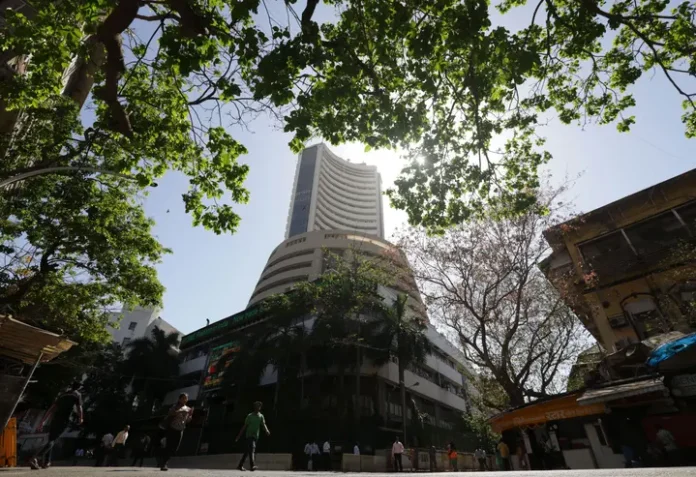By Sujit Bhar
Sometimes stock markets are irreverently called gambling dens or legalised satta bazaars. That isn’t true, simply because stocks trading on the bourses draw their valuation, inherently, from the companies these stocks are part of. Hence one might be willing to say that the valuation of a stock indirectly reflects the value of the asset represented, or the company. This makes sense, till it doesn’t.
How is that? A recent news item has had everybody shocked. A Delhi-based two-wheeler dealership—operating under the showroom name “Sawhney Automobiles” and of just one brand, Yamaha—Resourceful Automobile, with just two showrooms, a mere eight employees and an outlook (as per declaration provided by the company itself) not too bright, decided to go for an Initial Public Offering (IPO) to raise a modest Rs 12 crore, to fund expansion and repay debts. This small-cap issue should not have drawn much attention, but it did. It ended up being oversubscribed 418.82 times overall, attracting bids worth a mind-boggling Rs 4,800 crore!
That has put experts in a spot, barely able to explain this “irrational exuberance”, to use a phrase made famous by the then Federal Reserve Board Chairman, Alan Greenspan. While the true nature of the oversubscription of an almost insipid IPO needs detailed investigation, there are two very serious issues at play here. First is the shocker that the investor type is mostly retail—retail investors bid 496.22 times, while the “other” category bid 315.61 times. In normal IPOs, the retail category forms a very small part, with the major chunks picked up by institutional investors/underwriters who act as “anchors” to the issue.
It is another matter that the shares of this company were listed at a flat Rs 117 against its IPO price of Rs 117 per share. There was no exuberance there, despite a hefty premium in the grey market before the listing. Something looks irregular, for sure.
This event could have been explained away as an exception, but while such issues on Indian bourses are rare, there have been warnings over the fact that Indian share prices are quite uncomfortably overpriced, especially of small- and mid-cap stocks.
In a recent published comment, VK Vijayakumar, chief investment strategist at Geojit Financial Services, and Ajay Bodke, an independent market analyst, have clearly talked about this “exuberance” and one critical reason has been cited as “fanciful narratives”. These narratives aren’t from established stock brokers or experts, but the new age “influencers”, who use their superior presence on social media to egg the retail investors on to “secret” stocks and IPOs, promising returns that would put Ponzi scheme operators to shame.
Systemic Move
However, one cannot just blame the “influencers’” for such unbelievable irrationality. There is a systemic move towards creating a hype that seems to have drawn everybody in its wake.
In January this year, a huge story sent shivers of excitement down all Indian spines. According to data compiled by Bloomberg, India became the world’s fourth-largest equity market, overtaking Hong Kong. It was found that the market capitalisation of India’s shares reached $4.33 trillion, compared to $4.29 trillion for Hong Kong.
It was also widely touted that this growth “reflects growing investor confidence in the world’s most populous nation”. While the question at that moment was whether the momentum would continue, the bigger and more insidious query was whether Indian stocks were grossly overvalued. One must realise that there is a qualitative difference between shares listed on the Hong Kong market and those on Indian bourses.
Looking deep, we see that the Hong Kong market trades at a 12-month forward price-to-earnings multiple of about 9 compared to 20 times for India. This high PE makes for an unsteady situation for India. One must also understand that since 2021, stocks in China and Hong Kong sold off a massive $4.8 trillion in market capitalization. That was way larger than the entire valuation of the Indian stock market at the time.
Hence this hype over India becoming the fourth largest should be treated as just hype and not much else. With overvalued stocks, a huge correction, or even a crash cannot be ruled out. The ultimate losers will be those retail investors who put their hard earned money in risky ventures.
What about SEBI?
The biggest restraining measure at this point should have come from SEBI, the national market watchdog. There should have been warnings issued and grossly overpriced IPOs investigated.
However, with Madhabi Puri Buch, the current chairperson of SEBI, herself under scrutiny over certain conflict of interest issues, it looks unlikely that SEBI would come up with some constructive action. This leaves the retail investors in the lurch.
Why are retail investors in such a hurry to access the uncertain market without the benefit of proper knowledge of a sector or at least the company in question? Of course, there is the questionable “guidance” of online “influencers”, but one has to also realise that the overall fiscal situation of the middle class is extremely shaky at best now. Sources of income are drying up, taxation at different levels is making the middle class gasp for air, and the entire MSME environment is withering.
What about the law?
The last resort of a citizen remains the law enforcement agencies and the courts. For financial frauds, the due process takes years, if not decades, and the common man has neither the time nor the financial muscle to see himself/herself through such nightmarish mazes.
There is little resuscitation resource available to the common investor in this regard. Thus, with the markets synthetically overpriced, the SEBI intransigent and refusing to get involved, with the velocity of money pared down and with strange online advisories the only hope, people are bound to make bad decisions. Decisions that result in micro IPOs, such as that of Resourceful Automobile, oversubscribed over 400 times. These are precarious times indeed.


